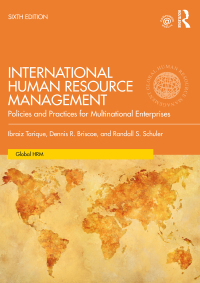Since the emergence of e-commerce (e.g., digital marketplaces) there has been an exponential growth in the rise
Question:
Since the emergence of e-commerce (e.g., digital marketplaces) there has been an exponential growth in the rise of micro-multinationals (e.g., small businesses that use technology and digital platforms to sell products and services). Online marketplaces like eBay of Canada recognize and award micro-multinationals. Winners in the past have included Boutique LUCS (2020), Storage_Warriors (2019), Motomike_Canada (2018), Runway Catalog (2017), and Budget Electronics (2016).
One example of a micro multinational is Yarn Paradise, which was created by Ferit Göksen, who was born and raised in Kaseri, Turkey. After attending college, he relocated to Istanbul to obtain his Master of Business Administration (MBA) degree from Marmara University, where he became interested in international trade and development. After he received his degree in 2001, he and his partner began selling different items on the eBay platform in Istanbul. In 2004, he combined his technology skills with his partner’s traditional business skills and together they founded GSC Tesktil. “After a few years, we wanted to focus on a specific product. We noticed there was a market for yarn, and we decided to try selling it on eBay.” Today, the business successfully utilizes the power and reach of the Internet marketplace to sell yarn products worldwide. The company sells through multiple websites:
• www.yarn-paradise.com
• www.iceyarns.com
• www.kukayarns.com
• www.yuncenneti.com
• www.boutiquedelaine.com
• www.grosshandelwolle.com The company also sells on eBay and claims to have more than 5,000 different types of yarn (ebay.com)
The company employs between 15 and 20 people. “It’s great to be able to give 20 different families in my community a job,” explains Ferit, even though 98 percent of the company’s sales are outside of Turkey. While that was not his original intention, the Internet allowed Ferit to reach customers all over the world. About 35–36 percent of sales are to the US and the rest are divided between European countries and Asia. “Yarn Paradise has sold to almost every country in the world including Norway, France, Germany, the UK, Denmark, Sweden, Canada, Australia, Malaysia, New Zealand, Thailand, Trinidad, Ecuador, Egypt, Haiti, and many more. Sometimes I have never even heard of the country, until I get ready to ship the product,” says Ferit. Obviously, there is still much room for growth. Yarn Paradise uses companies like DHL and UPS to help with shipping and logistics. While most transactions are quick and seamless, there are some problems in countries where online commerce is still new, such as Eastern Europe. The biggest issue for Yarn Paradise is customs and customs duties. Buyers are often surprised by them, and this creates a bad customer experience........
Case study questions
1 Yarn Paradise is a micro-MNE. What is likely to be its next stage of growth? What will be its next human resource challenges stemming from further growth?
2 Based on the case study, describe important HR issues facing Yarn Paradise.
3 What can large MNEs learn from micro MNEs about managing human resources?
Step by Step Answer:

International Human Resource Management Policies And Practices For Multinational Enterprises
ISBN: 9781138489493,9780429806124
6th Edition
Authors: Ibraiz Tarique , Dennis R. Briscoe , Randall S. Schuler





